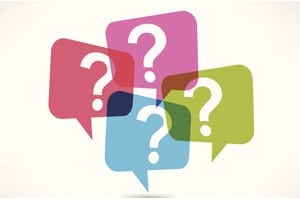 Is there still such a big difference between B2C and B2B marketing? We asked experts of both sides of the fence to weigh in on their approaches to communicating with customers, promoting products and moving prospects through the sales cycle.
Is there still such a big difference between B2C and B2B marketing? We asked experts of both sides of the fence to weigh in on their approaches to communicating with customers, promoting products and moving prospects through the sales cycle.
Driving Factors
B2B and B2C marketers are driven by different factors. “B2C and B2B marketing have similar goals but we’re communicating to two very distinct audiences,” says Tabara N’Diaye, sales and marketing manager, Cocktails in The City. “B2C marketing is more emotional and focuses on the benefits of the product whereas B2B marketing is more logical and focuses on the knowledge and return on investment.”
Marketing Investments
The length of the B2B sales cycle is also challenging, as multiple touchpoints can make it tricky to determine the impact of different campaign components.
Ryan Gould, vice president of strategy and marketing services at Elevation Marketing, feels companies should view marketing as a capital expense and not as an operating expense. “When done right, marketing has a direct and lasting impact on an organization. Unfortunately, we often see companies take marketing too lightly.”
More on B2B Marketing:
B2B marketing should focus not only on lead gen but building connections with prospects. “It is critical to look at the infrastructure, programs and activities that are directly responsible for developing these business assets as an investment,” adds Gould.
Setting Goals
Sales goals are more obvious in B2C than in B2B, and it is more challenging for B2B marketers to set KPIs. “Many great marketers and professionals fall into paralysis by analysis by focusing on lower level priorities and metrics,” notes Gould. “Top-level alignment of metrics to goals is critical in keeping all eyes on the prize and establishing how success will be measured globally.’
“The lines between B2C and B2B are definitely blurred nowadays,” feels N’Diaye. “Quantitive and qualitative data are invaluable when targeting both audiences.”
But do marketers really know why an audience buys? “As a B2C buying decision is more emotional towards the product, understanding lifestyle and market segmentation to really target your message is key,” adds N’Diaye. “We spend quite a lot of time trying to understand our audience and create a profile so all our content is bespoke and something they are effectively going to engage with.”
You May Also Like:
Knowing a customer’s journey through the sales funnel is key for both B2B and B2C marketers. “Mapping the customer journey is crucial, as well as finding the various touchpoints at which the interactions with our product happen,” says N’Diaye. Both sectors end up asking themselves where, how, when and why a customer made the purchase.
Content marketing can be vital to helping prospects make purchase decisions. But while B2B marketers struggle with providing as much informative and engaging content as possible, B2C marketers struggle with too much of it.
In B2C, “the abundance of information is sometimes problematic,” says N’Diaye. “Before making any purchase, people will read reviews and check the product on Google. Customers make less and less impulsive decisions, and we interact with an informed audience who will gather more and more information about our product as well as its competition before deciding to make a purchase.”
Jennifer Hakim is a freelancer marketing and PR consultant.
This article was originally published in February 2017 and has been updated regularly.
Related Articles:
ANA B2B 2018: Sentry Sits, Black & Decker Gets the Feels & More
Crafting Buzzy Brand Experiences for B2B Millennials



